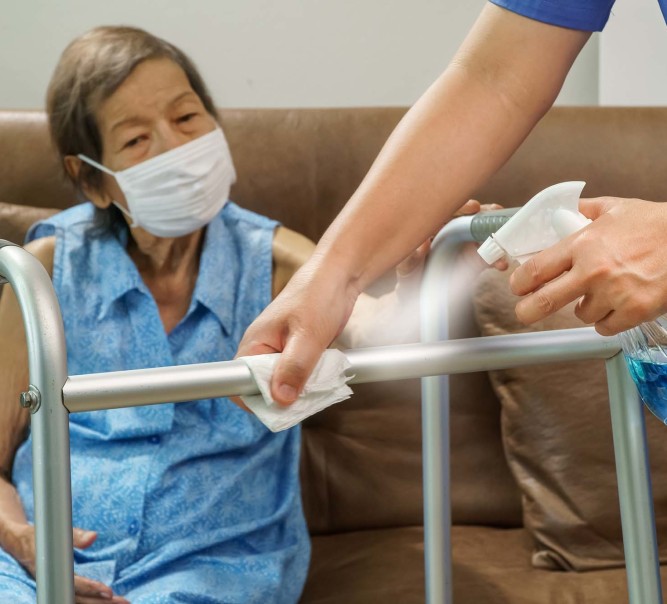APIAS study reveals how COVID-19 affects services for the elderly and their psychological health

Research by the Asia-Pacific Institute of Ageing Studies (APIAS) of Lingnan University finds that the COVID-19 outbreak severely affected all kinds of services for the elderly at varying levels. Nearly 70 per cent of respondents working at service centres for the elderly said that “drop-in service” (69.8%) and “social and recreational services” (68.5%) were completely suspended. Additionally, respondents observed that service users had suffered from “lack of social activity” (over 90%) and from “increase of loneliness” (over 70%).
The Institute sent emails to all 212 subsidised centres for the elderly in Hong Kong between 24 April and 14 May 2020 in order to understand the conditions, challenges, impact on service users, and the assistance they need to provide services during COVID-19, requesting staff members to complete an online questionnaire.
A total of 110 completed questionnaires were returned. Of the respondents, 33.6 per cent were in charge/second-in-charge of the centres. Most were social workers (70.9%), followed by personal care workers (12.7%), welfare workers (4.5%), nurses (1.8%) and clerks (1.8%).
The study shows that the COVID-19 outbreak severely affected all kinds of elderly services at varying levels. Nearly 70 per cent of respondents said that “drop-in service” (69.8%) and “social and recreational services” (68.5%) were completely suspended. Additionally, respondents noted that the impact on “carer support services” and “home visit services” was “severe” or “very severe”, accounting for 54.5 per cent and 44.6 per cent respectively.
The respondents observed that the coronavirus had affected the well-being of their service users, including “lack of social activity” (96.4%), “increase of loneliness” (78.2%), “worrying about being infected by the virus” (70.9%) and “physical deterioration” (65.5%).
During the COVID-19 outbreak, the respondents’ service units contacted people mainly by telephone (96.3%), followed by “putting information online” (69.7%). In addition, over 45 per cent of respondents indicated that their service units switched to “online training/learning” (46.8%) and also reached service users with more “postal information” (46.8%).
Respondents claimed that the main difficulties in providing online services were “service users were not familiar with online services or mobile apps” (92.2%) and “service users did not have related equipment” (84.4%). Also, more than 60 per cent of respondents said that “service users had a poor internet connection” (62.2%).
Asked whether they had sufficient anti-epidemic knowledge and items to provide services, over 40 per cent of respondents believed that their knowledge on epidemic prevention was “some” or “half-half” (40.9%). More than 40 per cent of respondents said their anti-epidemic equipment was “totally insufficient” or “some” or “half-half” (45.4%).
Concerning the operational guidelines provided by the HKSAR Government to the social welfare agencies during the COVID-19 outbreak, half of the respondents (50%) felt that they were “unclear” or “very unclear”, and only 11.8 per cent considered them “clear”. In regard to the support given by the Government to the social welfare agencies during the epidemic, over 90 per cent (91.8%) of respondents believed that the Government should have offered anti-epidemic items, and almost 85 per cent (83.6%) said that the Government should explain the operational guidelines to welfare providers. Some respondents added comments on the timing and content of the guidelines announcement and the technical and materials support.
Based on the survey results, the research team suggests that the Government should provide concrete and clear operational guidelines to welfare providers, offer anti-epidemic training and provide sufficient protective equipment to frontline staff. It should also provide additional financial support for welfare providers to launch online services and assist older people with financial difficulties to purchase equipment, as well as subsidising social welfare agencies to provide training on using smartphones to the elderly and their carers.

